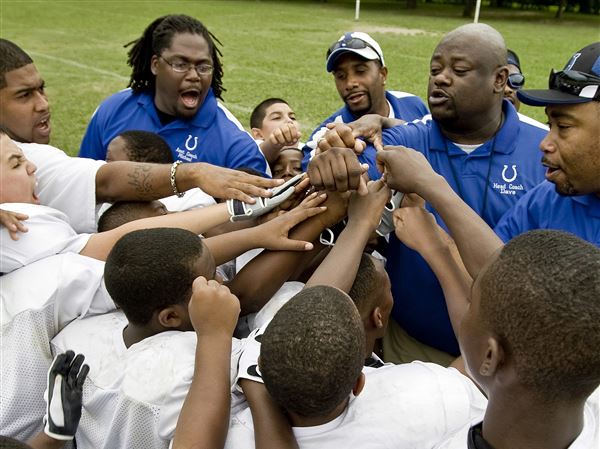Latest News
Football for Friendship holds expert discussion on sports development during pandemic

Experts of the international online discussion “Motivation and training in the context of the pandemic: the impact of Internet technologies on sports” reached the mutual conclusion that the pandemic will boost the development of e-sports and broaden the way sports are perceived in the world. It’s expected that the existing trend will strengthen: over the past 3-4 years, the audience of e-sports events has grown 5-6 times.
The discussion was initiated by the Gazprom International Children’s Social Programme Football for Friendship, which has, for the first time, brought the entire season online in 2020. Meanwhile, the annual World Championship for Young Participants from more than 100 countries is held in the new football simulator Football for Friendship World. In the future, the app will become a gaming platform where anyone can train, join mixed international teams, and play their favorite game in the Football for Friendship format without leaving the comfort of home.
The guest experts — football players and e-sports players — shared their views on how the pandemic is affecting the training process, and whether e-sports will be able to fully replace traditional sports in the future. Alexey Smertin, adviser to the President of the Russian Football Union and Ambassador of the Football for Friendship programme, and Alexandra Kosteniuk, grandmaster, three-times winner of the World Chess Olympiads, and European Chess Champion, spoke about the impact of the pandemic on professional sports. Igor Bugaenko, head of the Special Projects Department of the Russian eSports Federation (RESF), spoke about the development of Russian e-sports. The discussion was attended by representatives of FC Schalke 04: head of the e-sports division Tim Reichert, League of Legends coach Dylan Falco, and professional FIFA player Tim Schwartmann (“Tim Latka”). The discussion was moderated by Euronews TV host Andy Robini.
Igor Bugaenko expressed his conviction that the pandemic can also have a positive impact on sports: “Despite the cancellation of many offline sporting events, we are doing our best to maintain the quality and spirit of the competitions that are currently held online. The pandemic has affected how people spend their free time. I think the main achievement of this period has been to broaden the way sports are perceived, enabling people to re-evaluate the role of e-sports in the world”. The expert also noted that Russia was one of the first countries to officially recognize e-sports. According to Bugaenko, in the last 3-4 years alone, the audience of e-sports events has grown 5-6 times.
However, according to Alexey Smertin, e-sports are hard to compare to traditional sports, with their “physical overcoming of oneself, pain and hard-to-achieve results”. On the other hand, if we take a professional approach, in both traditional and e-sports it’s important to focus on achieving results; so, in this sense, there’s no difference between them.
Tim Schwartmann (Tim Latka) has a similar view: “If young people want to be successful — be it in e-sports or traditional football — they have to work hard, train a lot for the game, and never rest on their laurels”.
Today, many football clubs are developing e-sports as a separate area. “In recent years, the popularity of e-sports has become evident. By investing time and effort into developing e-sports, we hope to establish a dialogue with the younger generation of football fans”, explains Tim Reichert, head of FC Schalke 04’s e-sports division. Reichert expects that self-isolation will accelerate the merging process of traditional and digital sports several-fold. In his opinion, e-sports and traditional sports already have many things in common: league structures, competitions, psychological demands for players, and regular training.
Alexandra Kosteniuk noted that the past months have become a landmark in the history of sport: “The pandemic has opened up a real Pandora’s box for chess players: if earlier, part of our competitions were already being held online, now it’s the most convenient format for both the audience and participants”. As she explains, the pandemic has stimulated an increased interest in online competitions over the past few months, “even in the case of chess, which is not the most popular sport among viewers, not to mention the world of e-sports in general”.
About the programme:
The International Children’s Social Programme Football for Friendship is implemented by Gazprom since 2013. Over the previous seven seasons, the programme has united over 6 000 participants from 211 countries and regions and over 5 000 000 supporters.
Young Players and Young Journalists are the participants of the programme – boys and girls aged 12 including children with disabilities. Young Players represent different countries and cultures united in the mixed teams. They show that nationality, gender, and physical abilities aren’t a barrier to becoming a team. Young Journalists cover the events of the programme in the International Children’s Press Center. All participants become Young Ambassadors of the programme and continue to share their Football for Friendship experience and promote universal human values: friendship, equality, fairness, health, peace, devotion, victory, traditions, and honour.
UEFA, FIFA, football federations and the world’s leading football clubs, international charity foundations, famous athletes, politicians, and artists support Football for Friendship. The project has received multiple national and international awards in the field of social responsibility, sports, and communications, including the world record for the most nationalities in a football training session in history.
In 2020, Football for Friendship will be held in the online format. A special digital platform will unite over 10 000 players of all ages. It will become the home for international children’s competitions and a playground where anyone will be able to train, join into the international mixed teams and play their favourite game in the Football for Friendship format without leaving the comfort of their home.
Powered by WPeMatico
2026 betting analysis
Arizona Department of Gaming Releases December Sports Betting Figures

Bettors in Arizona wagered approximately $822 million on sports and events in December 2025, according to a recent report from the Arizona Department of Gaming (ADG).
This total reflects an approximate 3% year-over-year decrease compared to December 2024, marking a slight pullback in betting activity.
Despite the decrease in handle, the report highlights that the state collected roughly $6.6 million in privilege fees during December, contributing to Arizona’s continued revenue from regulated event wagering. Since launching legal sports betting in 2021, bettors in the state have wagered more than $31 billion, generating over $165 million in privilege fees to date.
For the fiscal year 2026 year-to-date, regulated event wagering and fantasy sports have generated about $33 million in privilege fees, including $32.3 million from sports betting and $774,167 from fantasy sports activity.
Jackie Johnson, Director of the Arizona Department of Gaming, noted that the December figures conclude the 2025 calendar year, during which Arizona sports bettors wagered more than $9 billion on sports and events, further demonstrating the size and scale of the state’s regulated betting market.
The Department’s monthly reports detail wagering and fantasy sports revenue figures from licensed operators, offering transparency into the evolving sports betting landscape in Arizona.
Disclaimer: December figures are self-reported by operators and may be adjusted after audit.
Full report available at gaming.az.gov/resources/reports
The post Arizona Department of Gaming Releases December Sports Betting Figures appeared first on Eastern European Gaming | Global iGaming & Tech Intelligence Hub.
Compliance Updates
Arizona Department of Gaming Releases December Sports Betting Figures

Bettors in Arizona wagered approximately $822 million* on sports and events in December of 2025, according to a newly released report by the Arizona Department of Gaming (Department). This represents an approximate three percent decrease year-over-year when compared to December of 2024.
“Today’s report closes out the 2025 calendar year for Arizona sports betting figures, with the year exceeding nine billion dollars in event wagering activity,” said Jackie Johnson, Department Director. “Additionally, legal, regulated event wagering allowed the state of Arizona to collect more than $53 million in privilege fees for the calendar year.”
The state collected approximately $6.6 million in privilege fees for the month of December. Since the launch of legal sports betting in Arizona, people have wagered over $31 billion, generating over $165 million in event wagering privilege fees for the state.
For fiscal year 2026 year-to-date, regulated event wagering and fantasy sports have generated approximately $33 million in privilege fees, including $32.3 million from event wagering and $774,167 from fantasy sports.
The Department publishes monthly Event Wagering and Fantasy Sports Revenue Reports on its website, reflecting figures from operators licensed by the Department. The full December reports are available at: gaming.az.gov/resources/reports
* Disclaimer: These numbers are self-reported by the operators; as such, these numbers are subject to adjustments after audit and review by the Arizona Department of Gaming (“Department”). The Department makes no assurances regarding the accuracy of these numbers.
The post Arizona Department of Gaming Releases December Sports Betting Figures appeared first on Americas iGaming & Sports Betting News.
5x3 video slot
PokerStars Casino joins forces with Games Global and Oros Gaming for New The Slotlist Launch ‘Magnificent Power Leprechaun’

PokerStars Casino has expanded its exclusive The Slotlist portfolio with the launch of Magnificent Power Leprechaun, a St Patrick’s Day-themed online slot developed in partnership with Games Global and Oros Gaming.
The new 5×3 video slot delivers a fast-paced Irish-inspired adventure led by a mischievous leprechaun character, combining dynamic gameplay mechanics with engaging bonus features designed to maximize player interaction and win potential.
Key Features of Magnificent Power Leprechaun
The game is powered by three core mechanics:
- Magnificent Power feature
- Cash Collect mechanic, where the leprechaun gathers coins and gold for instant rewards
- Wheel Bonus with retriggerable free spins
The slot’s continuous motion design ensures a high level of engagement, with frequent feature triggers and momentum-driven gameplay. According to Oros Gaming CEO Ryan Cuddy, the title focuses on maintaining a constant sense of action through coin drops, wheel spins and animated bonus sequences.
Expanding The Slotlist Portfolio
Since its launch, PokerStars Casino’s curated The Slotlist collection has attracted over 200,000 players and generated more than 100 million spins, reinforcing its strategy of spotlighting one premium slot release each month.
Magnificent Power Leprechaun joins previous featured titles including 12 Burning Baseballs, Chicken Blast, Olympus Storm, Piggy Heist and Ice Wolf 2, all selected for innovation, visual appeal and immersive mechanics.
St Patrick’s Day Promotion & Rewards
To celebrate the launch, PokerStars Casino is offering a promotional campaign where players earn double reward points for every $50 staked on Magnificent Power Leprechaun and other Slotlist games. Participants are also entered into prize draws featuring:
- Casino cash bonuses
- Satellite tournament tickets
- Two Emerald Passes to the Irish Open
This limited-time promotion enhances player engagement during the seasonal launch period.
Magnificent Power Leprechaun is now available to play on PokerStars Casino across supported markets.
The post PokerStars Casino joins forces with Games Global and Oros Gaming for New The Slotlist Launch ‘Magnificent Power Leprechaun’ appeared first on Eastern European Gaming | Global iGaming & Tech Intelligence Hub.
-

 Latest News7 days ago
Latest News7 days agoTRUEiGTECH Unveils Enterprise-Grade Prediction Market Platform for Operators
-

 Canada7 days ago
Canada7 days agoRivalry Corp. Announces Significant Reduction in Operations and Evaluation of Strategic Alternatives
-

 Acquisitions/Merger7 days ago
Acquisitions/Merger7 days agoBoonuspart Acquires Kasiino-boonus to Strengthen its Position in the Estonian iGaming Market
-

 Firecracker Frenzy™ Money Toad™7 days ago
Firecracker Frenzy™ Money Toad™7 days agoAncient fortune explodes to life in Greentube’s Firecracker Frenzy™: Money Toad™
-

 Blueprint Gaming5 days ago
Blueprint Gaming5 days agoBlueprint Gaming unleashes Frankenstein’s Fortune blending dynamic modifiers with multi-path bonus offering
-

 Compliance Updates6 days ago
Compliance Updates6 days agoHow to Apply for a Finnish iGaming License: Gaming in Finland Webinar on Application Steps and Technical Standards
-

 Big Daddy Gaming6 days ago
Big Daddy Gaming6 days agoBig Daddy Gaming® Expands European Footprint After MGA Licence Approval
-

 Africa7 days ago
Africa7 days agoEveryMatrix gains South Africa licence with customer launch pipeline on the rise



















